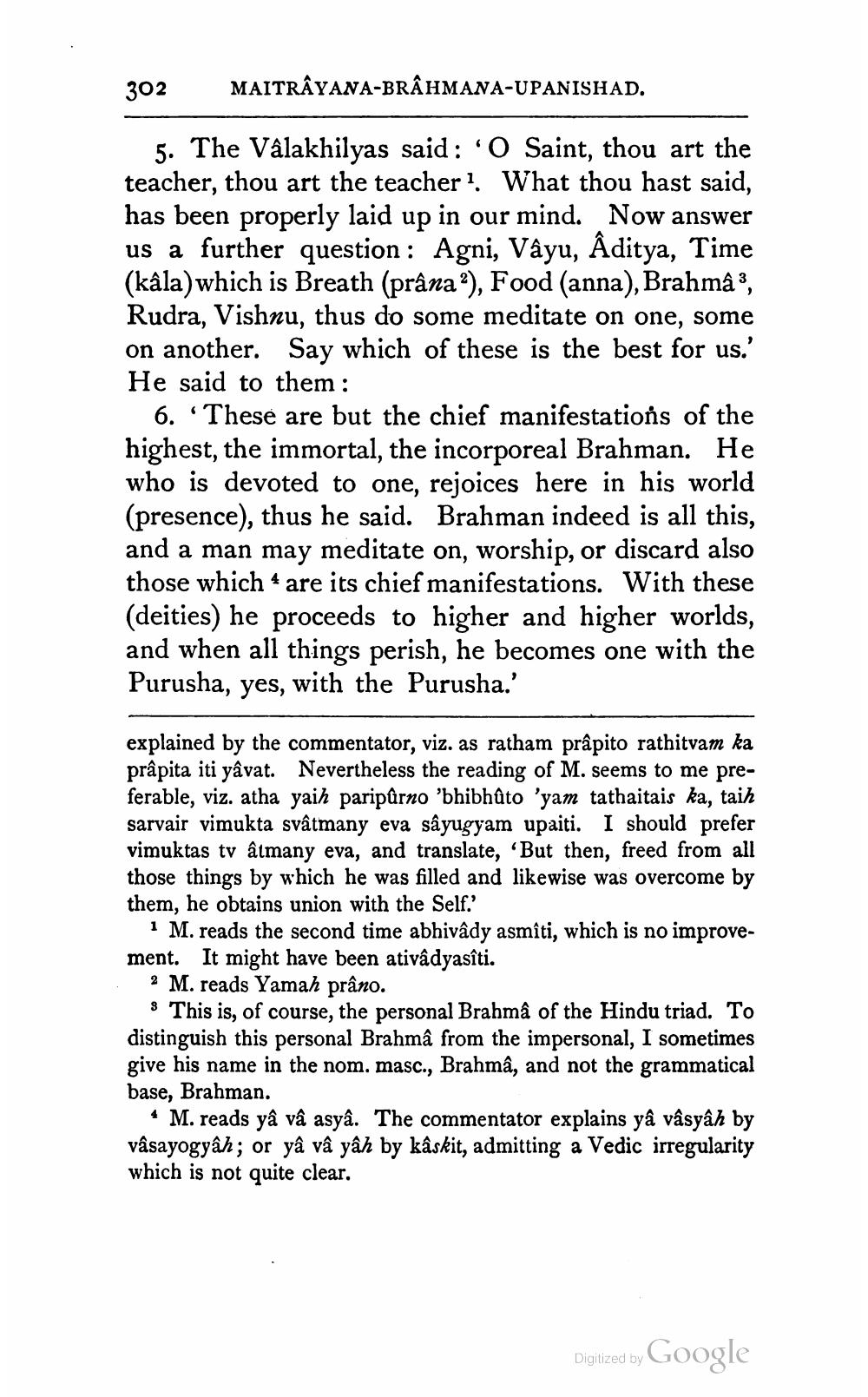________________
302
MAITRÂVANA-BRAHMANA-UPANISHAD.
5. The Vâlakhilyas said : O Saint, thou art the teacher, thou art the teacher? What thou hast said, has been properly laid up in our mind. Now answer us a further question: Agni, Vâyu, Aditya, Time (kâla) which is Breath (prâna), Food (anna), Brahmâ 3, Rudra, Vishnu, thus do some meditate on one, some on another. Say which of these is the best for us.' He said to them :
6. “These are but the chief manifestations of the highest, the immortal, the incorporeal Brahman. He who is devoted to one, rejoices here in his world (presence), thus he said. Brahman indeed is all this, and a man may meditate on, worship, or discard also those which * are its chief manifestations. With these (deities) he proceeds to higher and higher worlds, and when all things perish, he becomes one with the Purusha, yes, with the Purusha.'
explained by the commentator, viz. as ratham prâpito rathitvam ka prâpita iti yâvat. Nevertheless the reading of M. seems to me preferable, viz. atha yaih paripůrno 'bhibhùto 'yam tathaitais ka, taih sarvair vimukta svâtmany eva sâyugyam upaiti. I should prefer vimuktas tv almany eva, and translate, 'But then, freed from all those things by which he was filled and likewise was overcome by them, he obtains union with the Self.'
1 M. reads the second time abhivady asmîti, which is no improvement. It might have been ativadyasîti.
2 M. reads Yamah prâno.
% This is, of course, the personal Brahmâ of the Hindu triad. To distinguish this personal Brahmâ from the impersonal, I sometimes give his name in the nom. masc., Brahmâ, and not the grammatical base, Brahman.
4 M. reads yâ vâ asyâ. The commentator explains yâ vâsyâh by vâsayogyâh; or yâ vâ yâh by kâskit, admitting a Vedic irregularity which is not quite clear.
Digitized by Google




